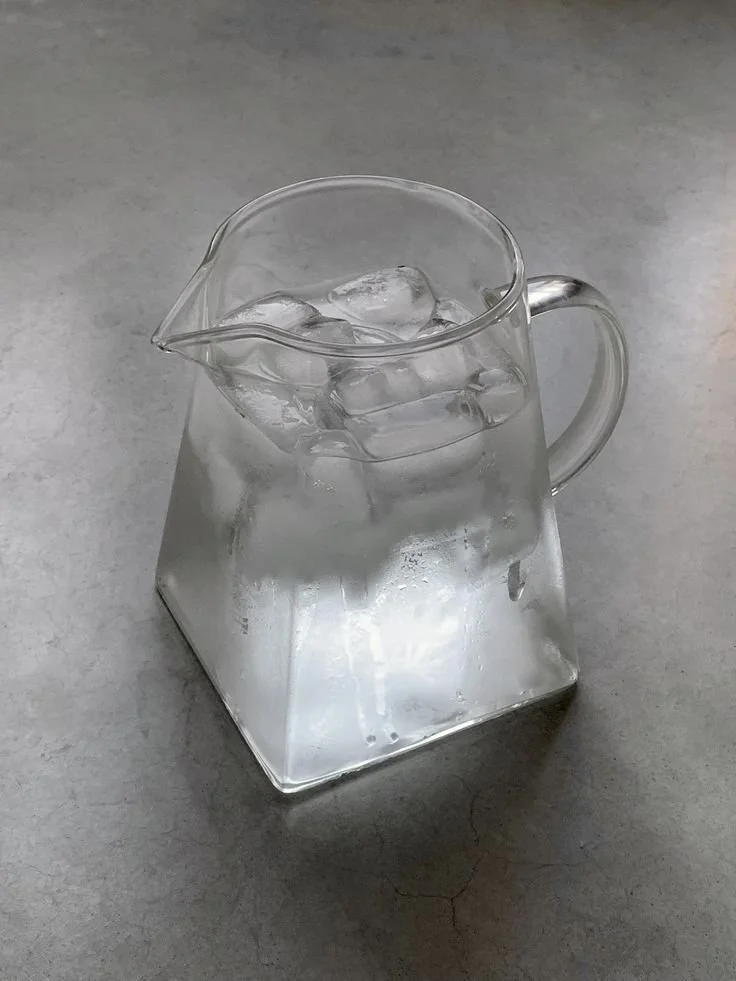How Addiction Is Blocking You From Living A Fulfilling Life
Addiction, whether it’s to drugs, alcohol, food, shopping, gambling, or any other harmful behavior, can profoundly affect many aspects of life. It often starts innocuously—a way to cope with stress, loneliness, or boredom. However, what begins as a harmless escape, over time can grow into a powerful force that controls thoughts, behaviors, and decisions.
Self-reflection is a powerful way to transform. Taking the time to look inward, assess our thoughts, feelings, and actions can lead to a deeper understanding of ourselves.
This insidious takeover prevents people from realizing their full potential—robbing them of joy, health, and the ability to thrive. It can be a formidable obstacle because it clouds judgment, distorts priorities, and erodes relationships. Whether it's substance abuse, unhealthy behaviors, or dependencies that hold someone captive, addiction has a way of overshadowing the reality of one’s self and interaction with their environment.
If you are struggling with addiction, in this article, we discuss ways addiction is keeping you from living a fulfilling life. By recognizing the impact addiction has on your life, you can begin to take the necessary steps toward healing, growth, and reclaiming your power. It's essential to confront addiction head-on and seek the support and resources needed to break free from its hold and embark on a necessary journey of healing, self-discovery, and transformation.
No. 1
the Illusion of Control
One of the most deceptive aspects of addiction is the illusion of control it creates.
Addiction has a powerful way of sustaining delusions, leading individuals to falsely believe they have a firm grip on their actions when, in reality, they are being controlled by the addiction. This dependency significantly influences thoughts, choices, and feelings, provoking automatic responses stemming from unresolved traumas and emotional distress.
As anxieties intensify, one's behavior deviates from their usual calm and collected demeanor, showcasing a version of oneself that is increasingly unrecognizable and unfamiliar. Daily routines, choices, and even relationships soon start to mirror addictive patterns, as there seems to be no escape from the addiction permeating into all aspects of life with its harmful effects.
The constant need to satisfy the addiction may not always be recognized as a significant issue, particularly if an individual can continue to maintain their daily responsibilities without major disruptions. However, over time, life starts to morph into an existence dominated by the demands of addiction, overshadowing the ability to lead a fulfilling and balanced life.
No. 2
The Physical Toll
Addiction can lead to a range of physical health issues, deteriorating the body's overall well-being and vitality over time.
Everyone has witnessed the profound impact addiction can have on an individual's physical well-being. From substance-related dependencies to behavioral compulsions such as overeating or self-injury, the manifestations of addiction extend their repercussions to one's bodily health, regardless of the specific nature of the addictive behavior.
While the physical repercussions are often the most apparent, serving as a primary indicator of addiction, the emotional and psychological impacts should not be underestimated. These consequences are not only glaringly visible but can also deeply affect overall well-being—leading to chemical imbalances and feelings of depression and suicide.
It isn’t too long before addictions have the potential to cause extensive harm to the body, resulting in chronic illnesses, compromised immune systems, and life-threatening conditions. Although manifestations differ among addictive behaviors, they all can exhibit physical signs that are observable to others.
For example, there are specific drugs whose effects manifest on the skin, serving as a significant signal that seeking drug rehab may be necessary. A food addiction can lead to various health issues such as obesity, increased body weight, diabetes, and heart disease. Conversely, having an eating disorder can result in noticeable physical changes like rapid weight loss, thinning hair, and deteriorating dental health.
The list could certainly extend endlessly for practically any addiction, and this applies even to those that do not involve substances entering your body, such as gambling, shopping, or other compulsive behaviors. The toll that these habits take on your physical well-being can hinder your participation in activities that used to bring you joy, decrease your energy levels, and reduce your overall enjoyment of life significantly. It's important to recognize these detrimental patterns to begin the journey towards a healthier and more fulfilling lifestyle.
No. 3
Lost Opportunities
Just think about it this way: every moment spent indulging in an addiction is a moment lost from pursuing your passions, dreams, and personal growth.
The time and energy consumed by addictive behaviors could be invested in developing new skills, nurturing your hobbies, advancing your career, or exploring creative outlets. Each moment spent overcoming cravings and urges can instead be channeled into activities that contribute positively to your personal growth and fulfillment. It is within these constructive pursuits that you may discover untapped potentials and pathways toward a more enriched and purposeful life.
It is important to understand that addiction can cloud your judgment, making it challenging to see things clearly and leading to missed opportunities, both big and small. You might find yourself inadvertently skipping important events, neglecting responsibilities, or failing to seize chances that could significantly enhance the quality of your life. Additionally, as time passes, these numerous missed opportunities start to pile up, contributing to a growing sense of stagnation and unfulfilled potential.
No. 4
Strained Relationships
Drug addiction has the profound capability to strain relationships in numerous ways, impacting both personal connections and professional engagements significantly.
It doesn’t matter what the relationships are really, whether it’s with family, friends, or romantic partners; the strain of addiction can cause deep rifts that significantly impact the bonds and connections we share with those closest to us. This emotional strain can lead to feelings of betrayal, deep-rooted mistrust, and overwhelming emotional distress, creating significant barriers to open communication, empathy, and mutual understanding between individuals.
Over time (or rather quickly), trust erodes as you become more secretive and unreliable due to your addiction. Social gatherings and interactions become less about genuine connection and more about finding ways to satisfy your dependency—leading to increased isolation. This sense of loneliness and disconnection perpetuates a cycle where less socializing equals fewer connections, further deepening your reliance on the addiction.
No. 5
The Emotional and Mental Health Struggles Will Grow Larger
Now, you must grasp the reality that addiction goes beyond impacting solely your physical state; it also exerts a profound strain on your mental health and emotional stability.
The constant cycle of craving and gratification can lead to anxiety, depression, and mood swings. You’re physically and mentally craving the next high on a physiological level. You may experience feelings of guilt and shame, knowing your addiction is harmful, yet feeling powerless to stop. This perpetual loop may leave you feeling trapped in a cycle that challenges your sense of self-control, self-identity, and inner peace. It all stems from the persistent illusion of control that shadows your attempts at breaking free from these consuming desires.
But it just doesn’t end there; remember what was mentioned above about relationships? Well, that’s another thing to consider, as these emotional burdens can create barriers that make it difficult to truly connect with others, ultimately leading to increasing feelings of isolation and profound loneliness.
The mental fog caused by addiction not only impacts your relationships but can also impair your cognitive functions, making it challenging to focus, make informed decisions, and think clearly. This, in turn, hinders your capacity to effectively pursue your aspirations and dreams, creating obstacles that make it challenging to grab a real footing on finding or fulfilling your purpose in life, leading to a sense of disconnection and fulfillment.
No. 6
Overcoming Addiction
Reciting aloud how the addiction is affecting you can be a powerful practice in raising your awareness of its impacts on your life and well-being.
By vocalizing the effects of the addiction, you bring them into sharper focus and out into the open, allowing yourself to confront them directly and take steps toward healing and transformation.
Acknowledgment
Take a moment to speak these words of recognition out loud, allowing their power to resonate within you and create a space for growth and healing:
“Addiction has created a barrier between myself and a fulfilling life. It consumes my thoughts, actions, and choices, leading me down a path filled with self-destructive behaviors and negative consequences. The grip of addiction prevents me from fully engaging with the world around me, sabotaging my relationships, career, and overall well-being.
Instead of pursuing my passions and goals, I find myself trapped in a cycle of seeking temporary relief through substances or unhealthy habits. This constant struggle with addiction leaves me feeling isolated, ashamed, and unable to step into my true potential and live a life of purpose and fulfillment.”
Affirmation
Now, take a moment to center yourself, close your eyes, and fully embody the essence of this transformational affirmation:
“On the journey of overcoming addiction, I embrace a new path of self-discovery and transformation to create a truly fulfilling life. By prioritizing mindful and healthy living practices, I will cultivate inner strength and resilience to navigate through challenging times.
Through consistent self-care and introspection, I unlock self-love, which is the greatest gift I can give myself—aligning myself with a sense of purpose that drives me forward each day. This journey toward personal growth and awakening has not been easy, but this is my first step toward an incredibly rewarding outcome as I promise to carve out a life rooted in wellness, balance, love, and freedom from all limiting beliefs.”
Takeaways: You Can Overcome Addiction
Healing and transformation from addiction are not only possible but inevitable on the journey of self-transformation. Through intentional practices such as mindfulness, self-reflection, and self-care, you can unlock your true potential and align with your higher self. By embracing vulnerability, facing inner fears, and releasing limiting beliefs, you can experience profound shifts in your life, leading to immense growth and empowerment.
It is in the willingness to explore the depths of our being that we find the keys to unlocking our awakening and stepping into our most authentic expression. True healing and transformation are within reach for all those who commit to the path of self-discovery and personal growth.






























